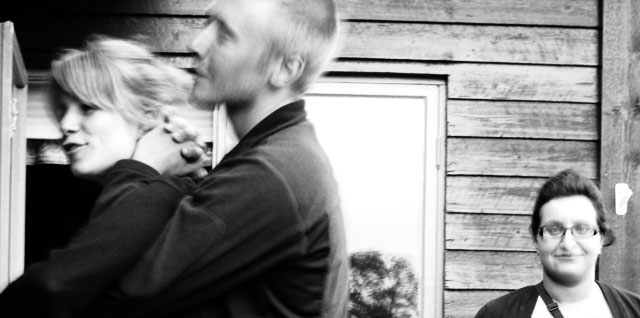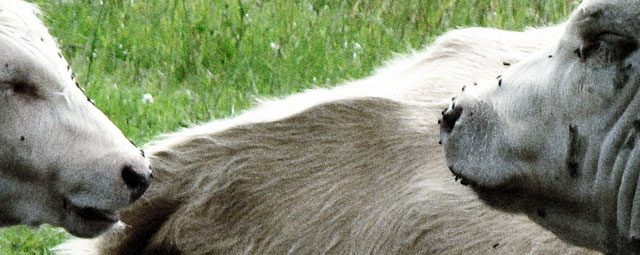
In the age of cheap facts, we now inhabit a world where knowing something is possible is practically the same as knowing how to do it. This means that invention is now a lot more like collage than like discovery.
→ Locus online, Cory Doctorow: Cheap facts and plausible premise
“We make this look really simple,” Tobias said. “For us to get here is not so simple. But how long it takes us isn’t the issue because once you’ve figured out how to make something simple, a 15-year-old kid can replicate it… That’s why we’re being so careful about [the details].”
→ Threat Level, Kim Zetter: Electronic High-Security Locks Easily Defeated at DefCon [ Previously ]
Sputnik Observatory is a New York not-for-profit educational organization dedicated to the study of contemporary culture. We fulfill this mission by documenting, archiving, and disseminating ideas that are shaping modern thought by interviewing leading thinkers in the arts, sciences and technology from around the world. Our philosophy is that ideas are NOT selfish, ideas are NOT viruses. Ideas survive because they fit in with the rest of life. Our position is that ideas are energy, and should interconnect and re-connect continuously because by linking ideas together we learn, and new ideas emerge.

One team of scientists is looking to modify the bacteria in our mouths, so that instead of developing plaque, they’re eating away at it and recalcifying our teeth. An inter-institutional collaboration called SynBERC is creating “tumor-killing bacteria” that hunt and destroy tumor cells based on biological markers. However, it’s tricky to work on these sorts of things right now, because there are so many societal hangups around introducing organisms into people.
→ SEED Magazine, Greg Boustead: The biohacking hobbyist
She’s got a DNA “thermocycler” bought on eBay for $59, and an incubator made by combining a styrofoam box with a heating device meant for an iguana cage. A few months ago, she talked about her hobby on DIY Bio, a Web site frequented by biohackers, and her work was noted in New Scientist magazine.
→ Wall Street Journal, Jeanne Whalen: In attics and closets, “biohackers” discover their inner Frankenstein
Simplify you life with gene synthesis! Improve codon usage and get more protein, introduce several mutation in one go! Order your gene online and concentrate on research – not on cloning!
Mr. Gene’s online codon usage optimization software allows you to design, analyze and order your gene online. Gene synthesis at your fingertips. Due to high automatisation and by acquiring excess capacities from OEM gene manufactures around the world, Mr. Gene can offer the best prices on the market.
It is an overwhelming task. “The human genome,” Rienhoff says, “is still a wilderness.” Despite all the well-publicized advances of the past two decades, precious little is known about the genetic variants that cause even the most common maladies, to say nothing of the rare, sometimes one-of-a-kind diseases that afflict children like Beatrice. As a result, up to 40 percent of special-needs kids will never receive a precise diagnosis. “It’s agonizing to have a child with a degenerative disease and not even be able to figure out what it is or what’s causing it or what the course of it will be,”
→ WIRED, Brendan I. Koerner: DIY DNA: One Father’s Attempt to Hack His Daughter’s Genetic Code